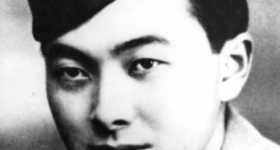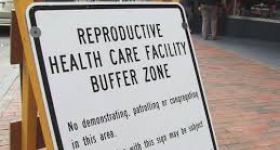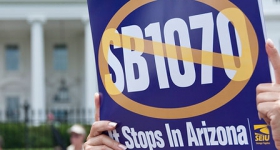I'm curious if you heard of any activities in your area, your neighborhood or your city around Hiroshima Day. I think it's ever important to keep this day in mind, remembering the people who died and also the survivors, like hibakusha, especially since we live in a country that has waged many wars abroad (and at home).
As Asian Americans, we can also collectively remember that many of us are here in the U.S. right now because our parents or ancestors left their homelands as a result of war (and many times because of U.S. involvement in those wars), as immigrants and refugees.
As Prof. Mari Matsuda at Georgetown Law said when I interviewed her for an article about the current antiwar movement, "Every single one of us has war in our geneology, as Asian Americans, and we can use that historical memory of what war did to all our countries of origin to oppose the war." She's talking of course about the war in Iraq, but it can be applied to any war.
According to some younger generation Japanese folks interviewed in Steven Okazaki's doc "White Light/Black Rain," (which is nominated for an Emmy) they do not even remember Hiroshima Day. If Japanese kids don't even know about this day, then it makes me wonder if Americans know about this day.
What's even more about this day is the real truth behind it--it didn't need to happen. Read Ron Takaki's piece here about the racist truths behind why the bombs were dropped.
Has anyone been to Hiroshima or the Peace Museum, or seen the atomic bomb dome? Please share your experiences.










Comments